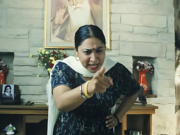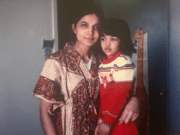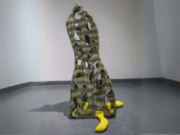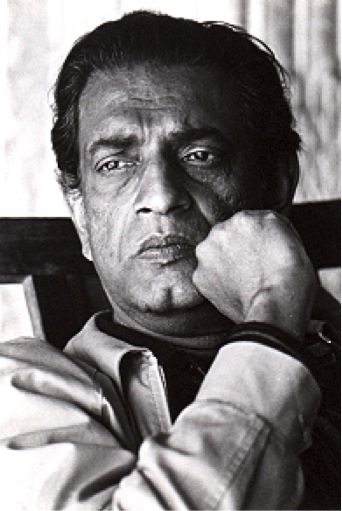TIFF Bell Lightbox, The Sun And The Moon: The Films Of Satyajit Ray
Satyajit Ray was one of the most influential filmmakers that ever lived. He was an artist that worked internationally in countries that were undergoing a quickly shifting identity from colonial rule to independence. He never stuck to making the same kind of film more than once. He created films of many genres including dramas, musicals, comedies, satirical and psychological thrillers; Shakespearian stories family films, and political allegories that thrilled audiences.
Until his death in 1992, many contemporary filmmakers have found inspiration in his films including Martin Scorsese, Alfred Hitchcock, Steven Spielberg, and countless others.
The Criterion Collection has released several of his films on disk for public viewing. The Academy of Motion Picture Arts and Sciences in the US has been working hard since his death to restore and preserve many of Ray's increasingly rare films.
TIFF Bell Lightbox has kicked off the most comprehensive retrospective of Ray's work. The Sun and the Moon: The Films of Satyajit Ray is running now until August 17th. It is a series of over 20 programs featuring Ray's work and it includes some wonderful and extremely rare pictures that one may not be able to view again for decades. This comprehensive TIFF Cinematheque retrospective presents 34 titles, including:

Company Limited By Satyajit Ray
Three of Ray’s Monumental Trilogies:
The Apu Trilogy of Pather Panchali (1955), Aparajito (1957) and The World of Apu (1959), which established the lyrical visual and narrative style with which Ray became identified; the Calcutta Trilogy, comprised of the skeptical, satirical, and politically engaged films The Adversary (1970), Company Limited (1971) and The Middleman (1975); and The Final Trilogy of An Enemy of the People (1989), Branches of the Tree (1990) and The Stranger (1991).
The superb chamber drama Days and Nights in the Forest (1969); and 35mm restorations of Devi (1960), an intoxicating story about the conflict of old and new India as it is waged over the body and soul of a shy young bride; Charulata (1964), a moving examination of women's status in the colonial world of Victorian-era Bengal; and The Music Room (1958), one of Ray's most magnificently visual films.
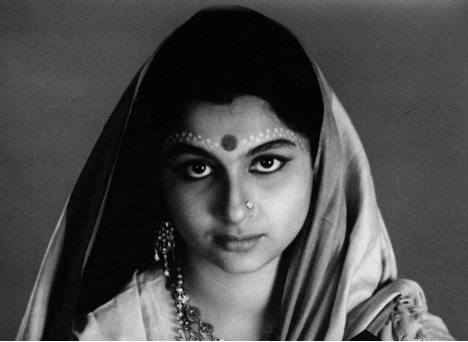
Devi By Satyajit Ray
Along with the retrospective is Passages to India: India Seen by Outsiders, which is a proactive sidebar series running from July 5th to July 27th. This series surveys the work of eight European and American filmmakers whose outsider's visions of India range from meditative documentary to delirious Orientalist artifice.
Satyajit Ray Roundtables and Talks is an illuminating series of onstage events exploring Ray's contribution to cinema as well as the restoration of his works by the Academy Film Archive, and Western artists' engagement with India as part of the Passages to India series.
Many of Ray's films and events about the filmmaker have already been screened in the early weeks of July.
Those films include: Pather Panchali, Aparajito, The World of Apu, Days and Nights in the Forest, Kanchenjungha, Kathleen O'Connell on Charulata, Deliverance preceded by Pikoo, Mahanagar, Devi, and The inner Eye: Four Shorts by Satyajit Ray.

Elephant God By Satyajit Ray
The screenings for the next week are:
· Three Daughters introduced by Michael Pogorzelski on July 17th
· The Chess Players introduced by Michael Pogorzelski on July 18th
· The Elephant God on July 19th
· The Home and the World on July 20th.
For all the films and the screening times, visit TIFF.net
Featured Image: satyajitray.ucsc.edu
Anokhi Blogs, Anokhi Media, Aparajito, Bollywood, Devi, Event, Film, Filmmaker, Indian, Legendary, Lyrics, Movies, Narrative, Onstage, Passages To India, Satyajit Ray, Screening, Sharmila Tagore, The Academy Of Motion Pictures Arts And Sciences, The Elephant Man, The Sun And The Moon, Tiff Bell Lightbox, Trilogy
COMMENTS
YOU MAY ALSO LIKE
-
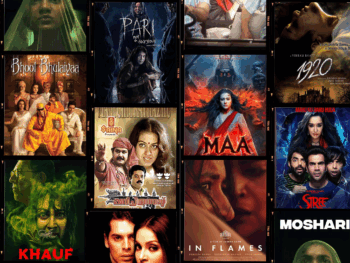
South Asian Horror Makes A Comeback: Films & Shows To Watch!
-

How Canadian Studio 'Cult Following Pictures' Is Changing Queer, Genre, & South Asian Storytelling
-
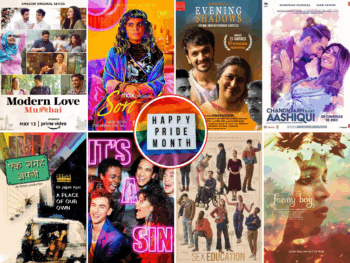
Pride In Frame: 10 Queer South Asian Stories To Watch This June
-

13 South Asian Music Maestros Who Revolutionized The Music Scene Forever
-

Exclusive Interview With Priyanka Bose & Raam Reddy On Magical Realism In 'The Fable'
-
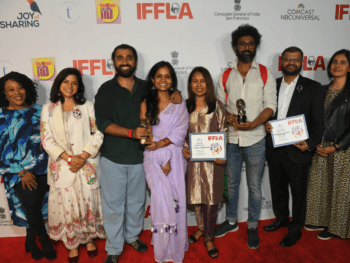
From AI Ethics To Queer Love: IFFLA 2025 Honours Groundbreaking Winners
-

South Asian Cinema Takes Over L.A. – Check Out The Must-See Films At IFFLA 2025!
-

Stress Awareness Month: This Is What I Watch When I Am Tired Of Adulting (And It Works Every Time)
-

Sneaking Samosas In The Theatre To Watch 'A Nice Indian Boy' With Zarna Garg & Sunita Mani
-

Reimagining 'Mahabharata': An Exclusive Interview With The Visionaries Behind Toronto’s Theatrical Spectacle - Miriam Fernandes & Ravi Jain
-

Experience The Epic Mahabharata Like Never Before – Now On Stage in Toronto!
-

Exploring The Renaissance Of Female Characters In Bollywood, Hollywood & Beyond!
-

South Asian Stars Light Up Hollywood At Glamorous Pre-Oscar Celebration!
-

The South Asian Takeover: 2025’s Most Anticipated Hollywood Film & TV Releases
-

Bollywood 2025: The Ultimate Movie Lineup You Can’t Afford to Miss!
-

Mindy Kaling Becomes The Second South Asian Woman To Receive A Star On The Hollywood Walk Of Fame
-

8 Must-Watch Patriotic Films To Celebrate India's Republic Day
-

Up Close & Personal with Sandhya Suri on Her Oscar-Bound Film 'Santosh'
-

Bollywood 2024 Recap: The Good, the Bad, and the 'Who Asked for This?'
-

Must-Watch or Pass? Your Definitive Guide to the Upcoming Bollywood Films This Winter
-

How PBS Series 'Renegades' Celebrates American History's Most Badass Disabled Changemakers
-

14 Bollywood Remakes Vs. Their Hollywood Originals - Who Did It Better?
-

Catch Pakistan's 1st Ever Hand-Drawn Animated Film 'The Glassworker' & Other South Asian Films At Reel Asian Festival
-

World Mental Health Day: How Bollywood Has Used Its Power Of Storytelling To Address Mental Health Stigmas
-

Highlights Of Archie Panjabi, Neeru Bajwa & Iman Vellani At iSAFF2024
-

3x Emmy-Nominated Television Host & Producer Rasha Goel Launches New Podcast "Beyond the Glam" - Premiering Today!
-

Does Bollywood Accurately Portray Financial Struggles of India's Working Class?
-

Canada’s International South Asian Film Festival (iSAFF) Triumphantly Unveils Its Thrilling 2024 Lineup!
-

TIFF 2024: Our Chat With Writer-Director-Star Srinivas Krishna On The 4K Restoration Of His Hidden Canadian Classic ‘Masala’
-

TIFF 2024: First-Time Filmmaker Lakshmipriya Devi Dishes On ‘Boong,’ Her Funny & Profound Modern-Day Folk Tale Told From A Child's Point Of View
-

Nepotism Or Repetitive Content - What's Causing Bollywood's Slump Versus Punjabi & South Indian Cinema's Surge
-

Must-Watch Patriotic Films From India & Pakistan For Your Independence Day Celebrations
-

Villainous Vixens: How Bollywood's Leading Ladies Are Redefining Cinema's Most Memorable Antagonists
-

'Girls Will Be Girls' Wins Big At The 2024 Indian Film Festival Of Los Angeles (IFFLA)
-

OTT Revolution: How Streaming Platforms Are Transforming Indian Cinema
-

A Train Bloodbath With A 90% On Rotten Tomatoes - Why You Should Watch TIFF-Acclaimed Indian Action Flick 'Kill'
-

The Indian Film Festival of Los Angeles (IFFLA) Celebrates Its 22nd Edition June 27-30 With An Incredible Lineup Of 21 Films
-

Pride Month & Beyond: LGBTQIA+ Representation in South Asian Cinema
-

From Stoic Protectors to Emotional Anchors: A Father’s Day Tribute Through Hindi Cinema
-

Exploring South Asian Intergenerational Sacrifice With 'The Wrong Bashir', Now Playing In Toronto
-

Bollywood & Beyond: Must-Watch Films for Vibrant Insight Into Muslim Cultures
-

Over 50 Films From 9 Countries At The Eclectic South Asian Film Festival Montreal (May 24 - June 3)
-

Mother's Day Special: How Bollywood & Hollywood Super Moms Show Us Women Can Have It All!
-

Emerging Talents and Established Icons: Celebrate South Asian Heritage Month with Us!
-

Revealing Truths: South Asian Cinema's Contribution to Earth Day Awareness
-

Review: Monkey Man - Dev Patel Sets the Screen Ablaze with Electrifying Action
-

Exclusive Q&A With Diljit Dosanjh on the Dil-Luminati Tour and the Exciting Simplii Collaboration!
-

12 South Asian Female Artists Who Are Changing Hollywood's Landscape
-

Transitional Representation of South Asian Women in The World of Entertainment
-

Hot February 2024 Films From Bollywood And Beyond!
-

How Jesse "Punjabi Timbit" Singh Explores Emotional Healing Through His Comedy
-

Rukus Avenue Radio, The World's #1 South Asian Radio Station, Joins The iHeartRadio App
-

From Silent Frames To Global Fame: Key Moments That Shaped Bollywood
-

Hot January 2024 Films From Bollywood And Beyond!
-

Kerala Actor Santhy Balachandran Celebrates Her Three Incredible Releases In 2023
-

Hot December 2023 Films From Bollywood And Beyond!
-

The Real Reason Why Bollywood Directors Love English In Their Titles
-
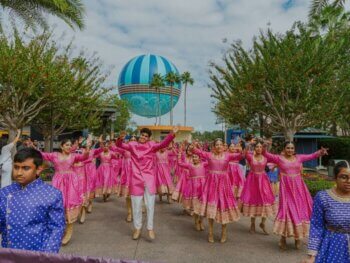
Diwali Dance Fest Makes History at Walt Disney World® Resort!
-

TIFF 2023: Deepa Mehta and Sirat Taneja Share Why 'I Am Sirat’ Is The Transgender Story To Be Told
-

The International South Asian Film Festival 2023 (iSAFF) Wraps With A Celebration Of Outstanding Global South Asian Pathbreakers




